Coronavirus doctor's diary: The patient who married hours before dying
- Published
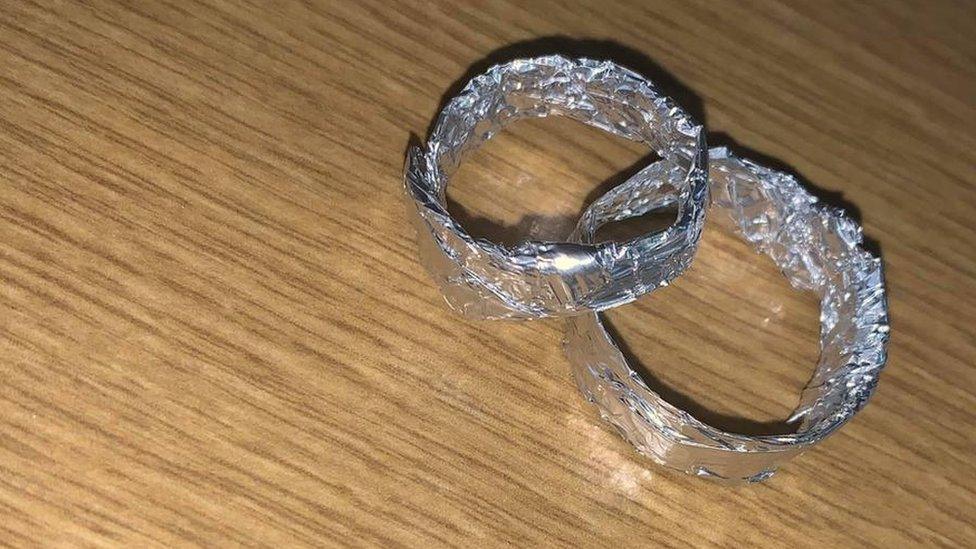
Dr John Wright relates two love stories from the Covid wards of Bradford Royal Infirmary - one about a patient marrying his fiancee hours before he died, the other about a nurse's tough decision to live apart from her four-year-old boy as long as the pandemic continues.
20 April 2020
This is a time of such heightened emotions - of fear and loneliness, but also of extraordinary love.
When newly qualified staff nurse Sophie Bryant-Miles arrived for a night shift on Ward One recently, she was told that a young man with a number of medical problems as well as suspected Covid-19 was not expected to survive, and was now receiving palliative care.
But also there - dressed in full PPE with gloves, apron, mask and visor - was his fiancée of at least 15 years, who told staff that they had never had the time or money to marry. Life had kept getting in the way.
It was a heart-wrenching collision between love and death, but out of it came a very beautiful thing. Sophie called hospital chaplain Joe Fielder, and asked him if he could marry the couple straight away.
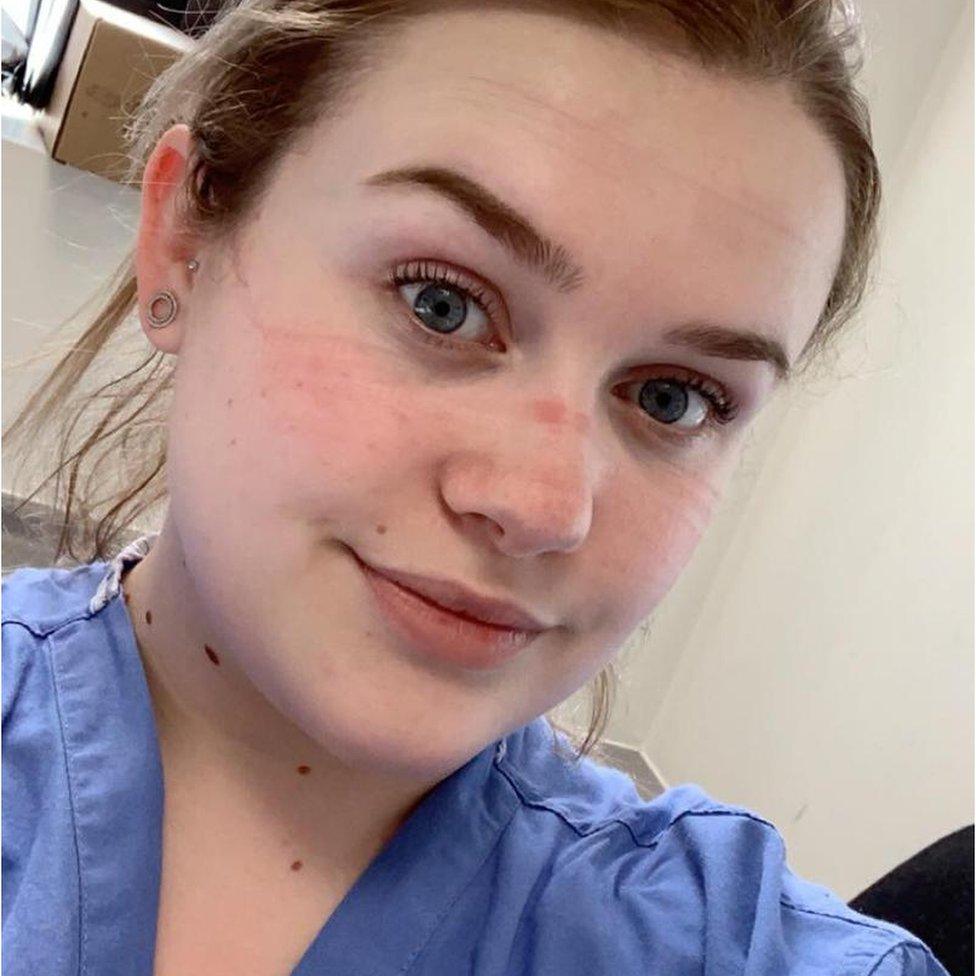
Sophie takes up the story:
Joe said he couldn't do a legally binding service but he could come and do a service that was like a wedding. They'd still say their "I do". They'd have the whole "til death do us part" and all the things that they'd have at a wedding, except in hospital. Joe came, and we made tin foil rings for them, and we got the patient's daughter on FaceTime so that she could watch as well.
It was just a really lovely service, and Joe was brilliant - he made brochures with the names on and all the hymns and the prayers that we were saying, everything.
The fiancee was completely understanding of the fact that we all had to be fully gowned up for it and that he [the patient] would have to wear a face mask. They were still amazingly excited about what was happening.
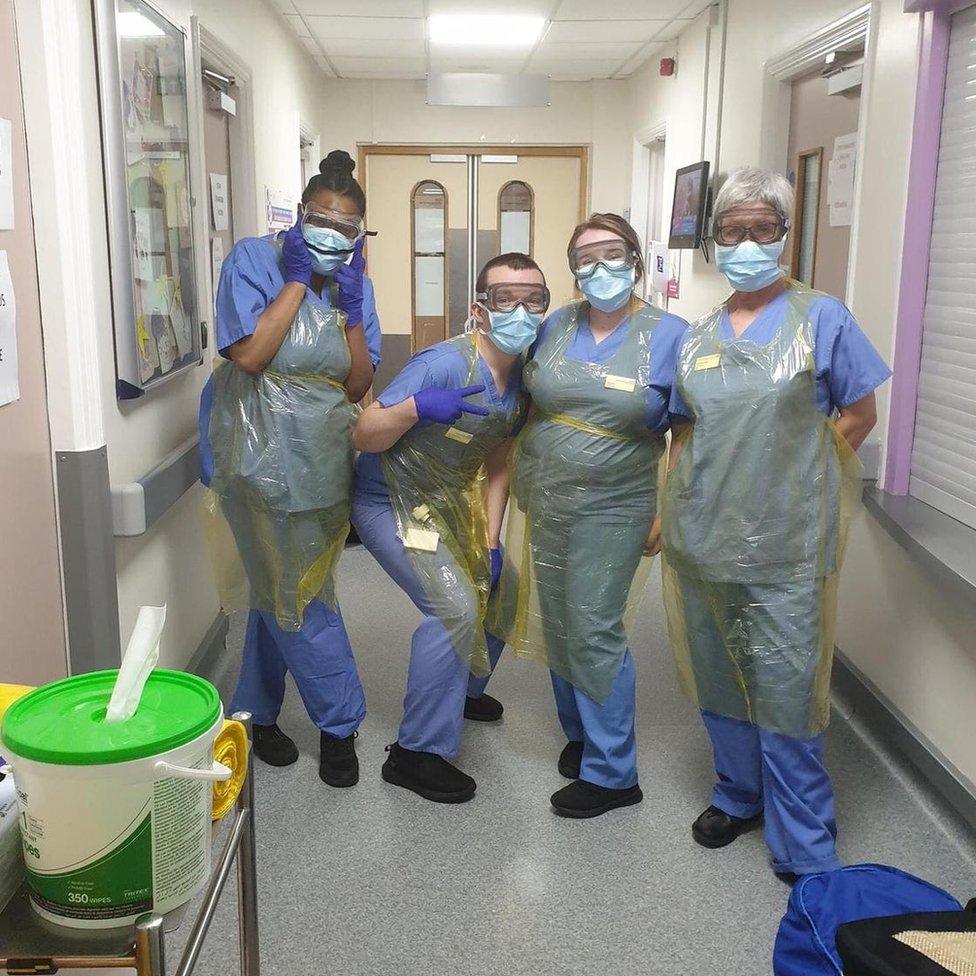
Sophie (second right) with nursing colleagues, shortly before the wedding
Joe was in the full gear, bless him, as well. He looked like he was sweating.
We did a little photograph shoot for them afterwards. Because that's what she wanted, and that's what he wanted. We tried to make it as much like a real wedding as we could, and then we gave them some cake too.
She'd been made very aware that he was in the last hours of his life, and I think this was the last thing that they felt they could do together. At least they've got this final memory together.
I think we were all in tears.
Chaplain Joe Fielder adds:
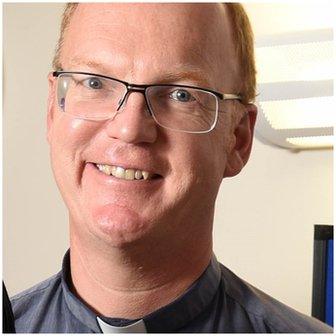
The medical advice was that he wasn't going to survive the night, so I used a service and a celebration of commitments which had lots of similarities with a church wedding service.
The patient did his best to say the words but struggled at times because of his breathing. His partner did her best to say the words but struggled at times because of tears, and the family were smiling and crying at the same time.
And all this was done in PPE equipment, it was very surreal. But that patient could die knowing that he had said those words of commitment, and his family would know that he died having done that. And his partner - she was really grateful. She's very grateful for the opportunity to have those words said.
You just want to do your bit to treat people with dignity, to help them know that they are loved and cared for. I'm very grateful to have the opportunity to help them celebrate their love and mark it in that way.
It's too early for the wife and daughter to comment - the funeral hasn't even taken place yet - but they have given their consent for this account to be published.

Front line diary
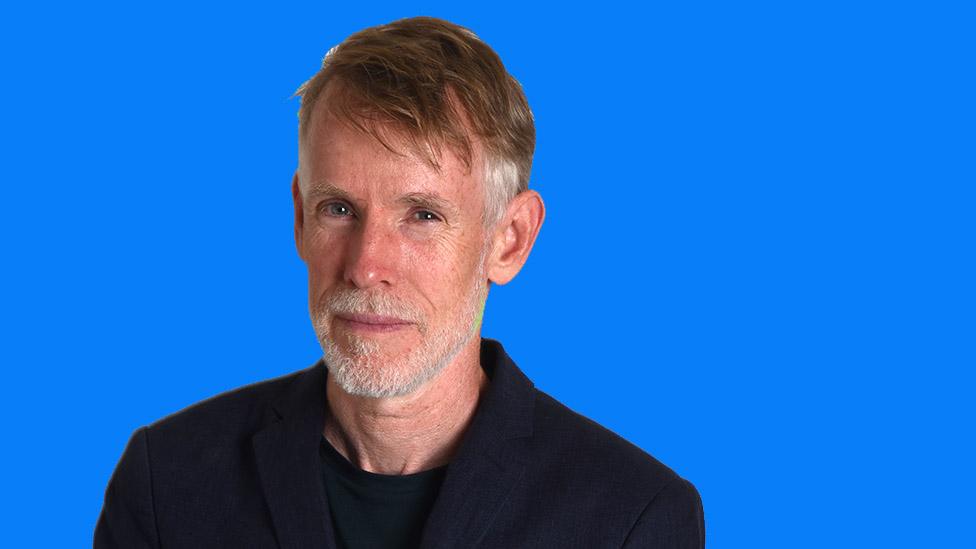
Prof John Wright, a medical doctor and epidemiologist, is head of the Bradford Institute for Health Research, and a veteran of cholera, HIV and ebola epidemics in sub-Saharan Africa. He is writing this diary for BBC News and recording from the hospital wards for BBC Radio 4's The NHS Front Line
Listen to the next episode at 11:00 on Tuesday 21 April, catch up with the previous episodes online, or download the podcast
You can also read the previous online diary entry: 'Fake news makes patients think we want them to die'

The ward manager, Jennie Marshall-Hamad, found out about the service when she woke the following morning. It was a bittersweet feeling. She felt overwhelmed and proud of her team - and a great sense of sadness when the patient passed away hours later.
But Jennie has her own moving story.
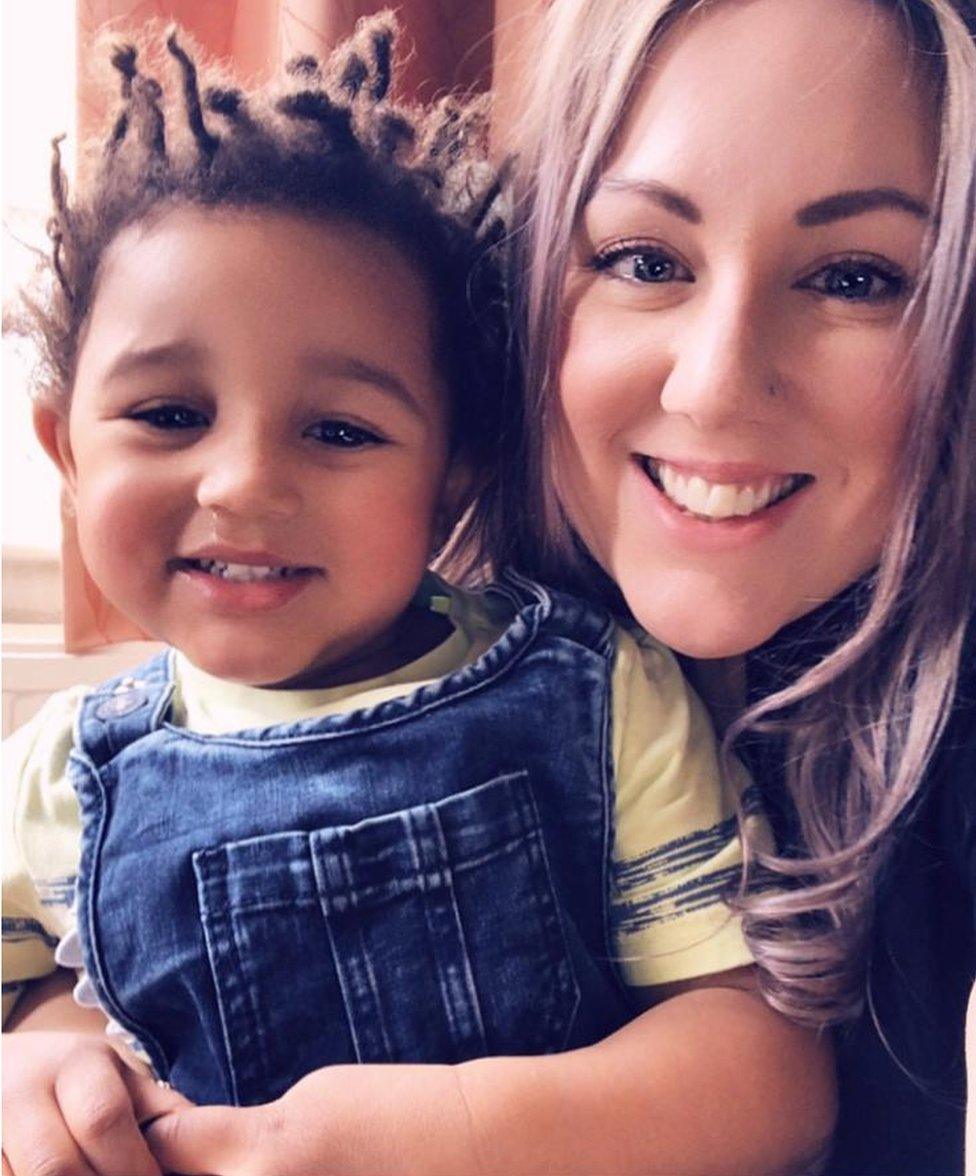
Jennie Marshall-Hamad with Zedi as a toddler
Four weeks ago, shortly before her son Zedi's fourth birthday, she handed him over to her mother, knowing that they would be parting for some time.
Jennie's mother is in a high-risk category, while Jennie and her team are looking after acutely ill Covid patients. A number of her fellow nurses have fallen ill and she cannot risk taking the virus to her mother's home, so instead she is dedicating herself to her work and doing as many extra shifts as she can.
"I feel I have a responsibility to be there and give everything I have to be there for the team at this time," she says.
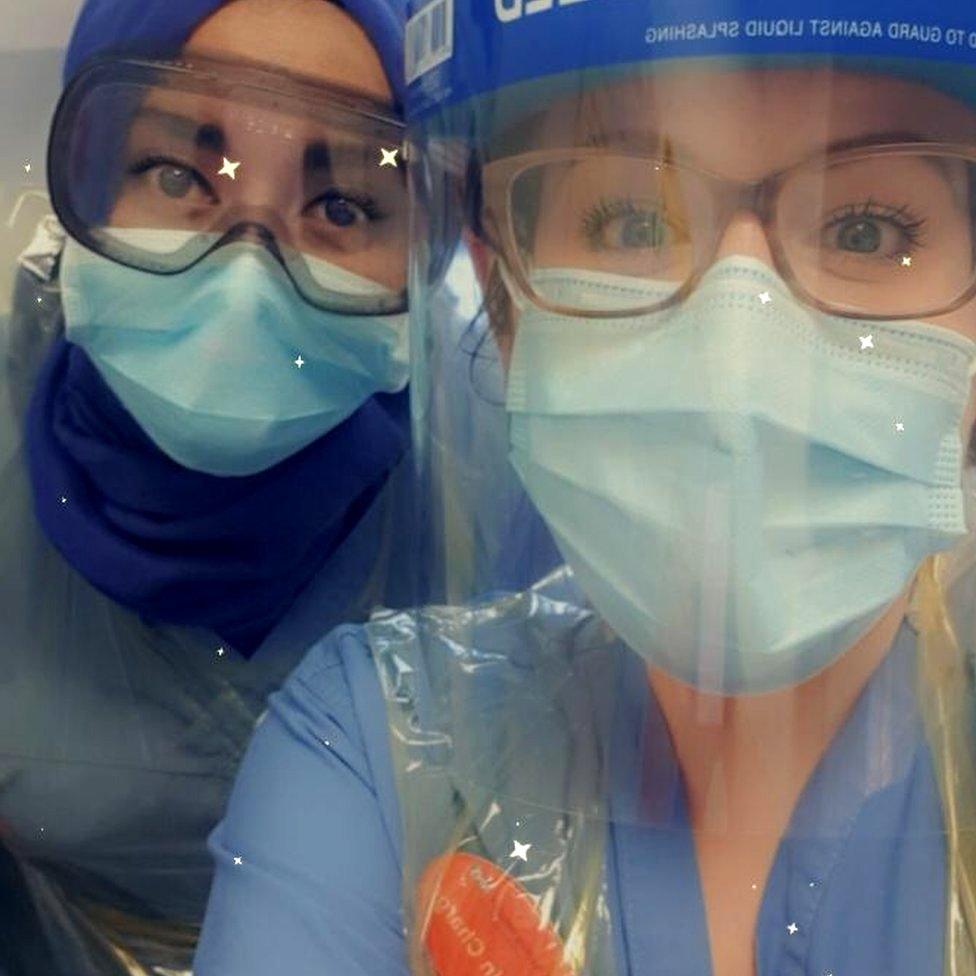
Jennie (right) and a colleague on Ward One
But this is the ultimate sacrifice for the mother of a young child to make, and I made Jennie cry by asking when she expected to hug Zedi again.
Here she explains what distancing means in practice for a mother and a four-year-old:
We have virtual chats, hugs and kisses every day, but it's a mother's worst nightmare not being able to kiss her child goodnight and only being able to see them through a phone.
I didn't see him face-to-face for three weeks, as I didn't think he would understand - I would go to my mum's and watch him from the window, without him realising. Then, after three weeks, I couldn't take it any more. I spent ages on the phone explaining to him why we needed to keep a distance, in a way he would understand, and he was very good. And so now I have seen him three times.
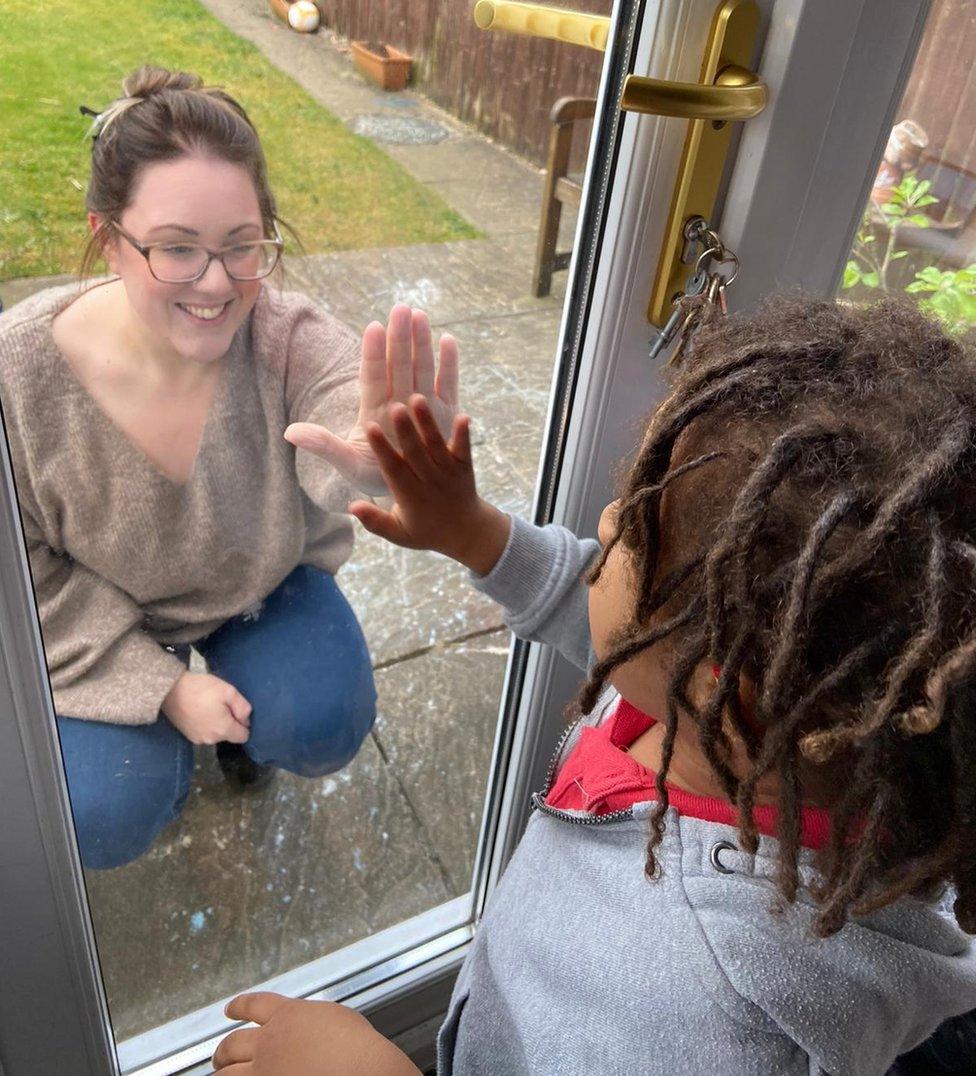
His birthday was the hardest day - not being able to touch him. I saw him from the end of the garden. My mum made a corner with a line made out of chalks that my son couldn't pass - we joked it was the dirty corner. Luckily it was Easter Sunday so we made a fuss of that. I watched him do an Easter egg hunt and he was very happy with all the chocolate eggs he had found, but unaware it was his birthday. We will have a big celebration when all of this is over.
Zedi is happy with my mum because he's used to being with her when I work, anyway. He understands that mummy has to work to help the poorly people. He understands that mummy could be carrying germs that might harm him and that he needs to stay with grandma to keep safe and well.
But having to keep a distance is hard.
At Bradford Royal Infirmary, we are all riding the peak of the epidemic wave and coping well, but none of us knows when it will end.
Follow @docjohnwright, external on Twitter

A SIMPLE GUIDE: How do I protect myself?
AVOIDING CONTACT: The rules on self-isolation and exercise
LOOK-UP TOOL: Check cases in your area
MAPS AND CHARTS: Visual guide to the outbreak
